Good news you probably didn't hear about
Global poverty reduction efforts are back on track. After the severe setbacks of 2020, a majority of low and middle income countries have seen poverty decline again, and more than half are now on course to reach a lower poverty rate in 2023 than in 2019. World Bank
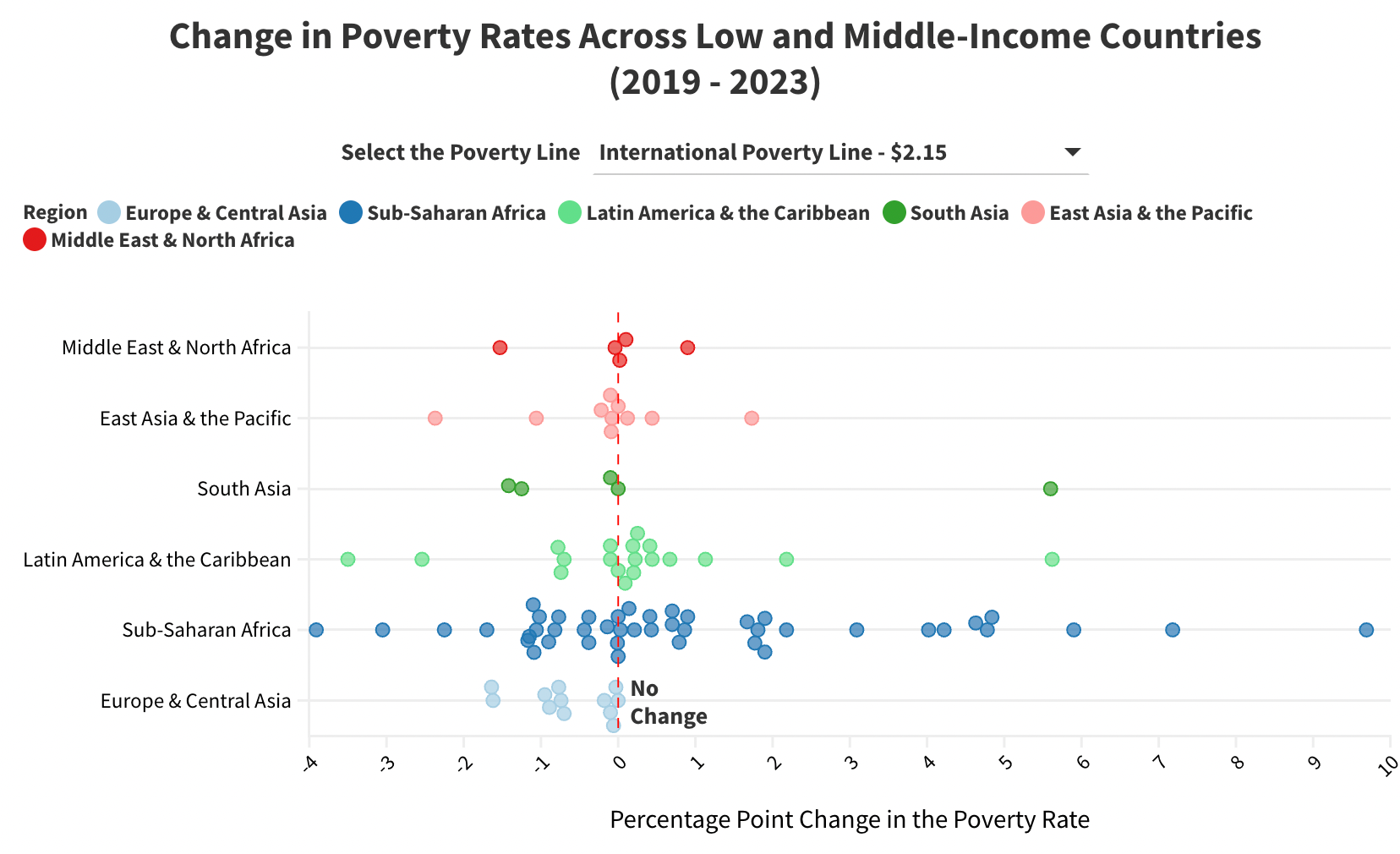
The world is getting safer. The World Bank has released its latest data on homicides, updated to 2021. Every region of the world, except the USA and Latin America, has seen murder rates decline in the last decade. Among OECD members, 20 countries now have rates below one per 100,000, compared with 15 countries ten years ago.
Dengue cases have fallen to their lowest level in 20 years after mosquitoes infected with virus-blocking bacteria were released across Colombia’s Aburrá Valley. It's the largest release of Wolbachia mosquitos ever, causing incidence to fall by 94% across the cities of Medellín, Bello and Itagüí, home to more than three million people. Telegraph
Did you know that Rwanda has one of the most successful public health programs in the world? Life expectancy increased from 49.7 years in 2001 to 69.6 in 2022, over 90% of the population has health insurance, thousands of new clinics have been built in the last two years, and it's on track to meet all the MDGs on maternal mortality, malaria, tuberculosis, and AIDS.
Yes, everything in America is awful, apart from the fact that it's recovered from the pandemic faster than any major economy, GDP has grown three times faster than during the previous administration, real incomes are rising, manufacturing is booming, inflation has eased for ten straight months, unemployment is at record lows and workers are the happiest they've been since the 1980s, it's on the verge of one of the most important public health victories of the 21st century, Rhode Island just became the sixth state to make lunch free for all students, reading scores in the Deep South are soaring, Vermont is spending hundreds of millions of dollars on making childcare more affordable, and Minnesota just concluded one of the most progressive and transformative legislative sessions in US history.
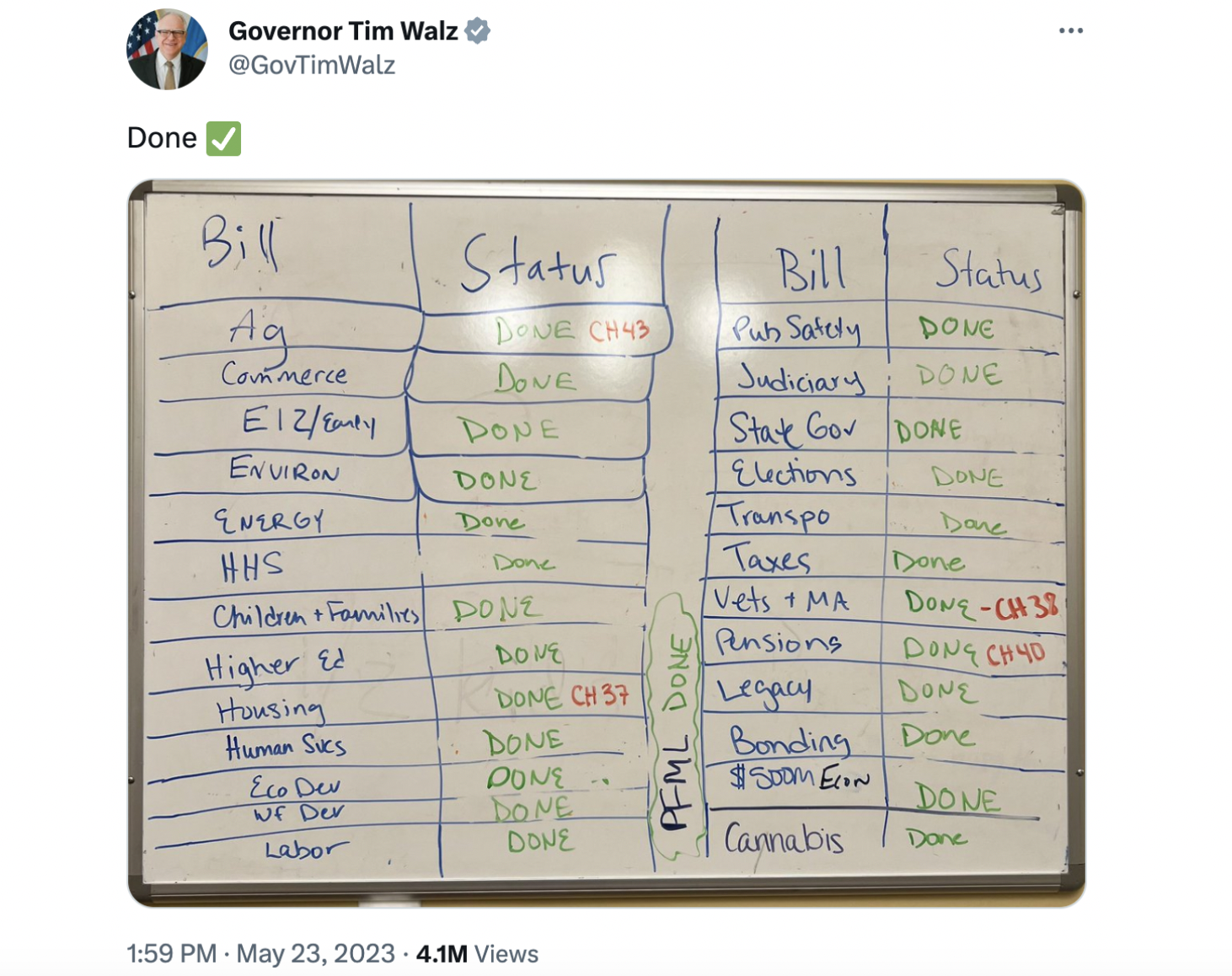
The Ivory Coast has made substantial progress on sanitation. Access has increased from 22% in 2011 to 56% in 2021, and the government just announced plans to spend nearly €840 million on sanitation and drainage projects over the next seven years, about five times as much as it did between 2013 and 2022. Afrik21
Canada's poverty rate fell to 7.4% in 2021, despite pandemic benefits ending. This is down from 10.3% in 2019, and nearly half the rate in 2015. In 2021, there were almost 2.3 million fewer Canadians living in poverty compared to 2015, including 653,000 fewer children, 11,000 fewer seniors, and 556,000 fewer persons with a disability. Statistics Canada
In 2018, Sierra Leone made school free for all students, outlawed corporal punishment, and dedicated a fifth of the national budget to teacher pay, school renovation and other education expenses. Although there are still problems, the result has been a 50% increase in enrolment and a dramatic improvement in the quality of education, with impoverished children benefiting the most. NYT
Uzbekistan recently concluded a massive vaccination drive against measles, reaching 98.4% of the country's 3.3 million children; the Philippines has vaccinated eight million children against measles and polio this year; and last week, Malawi kicked off a campaign to vaccinate nine million children against typhoid, measles, rubella, and polio.
A big win for human rights in Romania, after the European Court of Human Rights ruled that the government has violated the right to family life by not giving same-sex couples legal recognition. After a three-month period for appeals, the ruling will stand, leading to Romania being required to legalise same-sex civil unions. France24
Earlier this week, Cambodia began its largest-ever canine rabies vaccination drive, with over 100 volunteers, officials and animal welfare workers aiming to vaccinate 100,000 dogs in Phnom Penh in just ten days. It's going to make a big difference–Cambodia has one of the world's highest death rates from the disease. Dogs Today
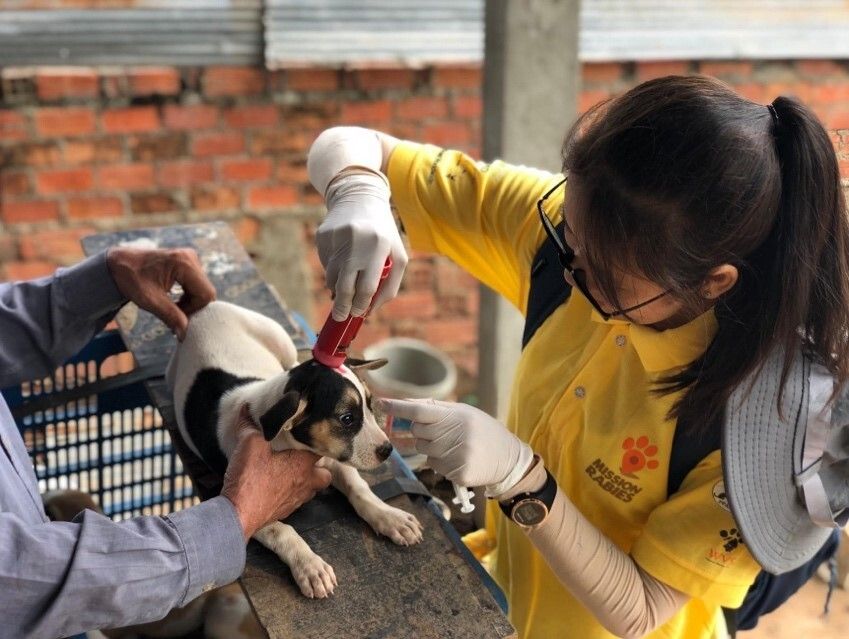
The only home we've ever known
The EU's highest decision making body just gave the final go-ahead for a new rule designed to stop the import of any products that destroy forests. The cut-off date has been backdated, meaning that only products produced on land that has not been deforested or degraded after 31st December 2020 will be allowed to be imported to or exported from the EU.
China's Hebei province now has 278 protected areas covering 14,034 km2, equalling 7.43% of its total land mass. Those reserves are home to 40 species of wild animals under China's first- or second-class national protection, including the North China Leopard, whose numbers are steadily increasing. China Daily
The United Kingdom has closed two loopholes in its conservation and animal rights laws. No new licences will be issued for animal testing of chemicals used exclusively as cosmetics ingredients, after exceptions were granted between 2019 and 2022, and a ban on ivory from hippopotamuses, orcas and walruses has been added to the 2018 Ivory Act.
A big win from our own backyard! The state of Victoria has announced that the logging of native forests will stop at the end of this year. This one's personal–we've been to some of the protests. Even the most optimistic activists weren't expecting this victory. The announcement includes significant funding for a just transition for forestry workers. ABC
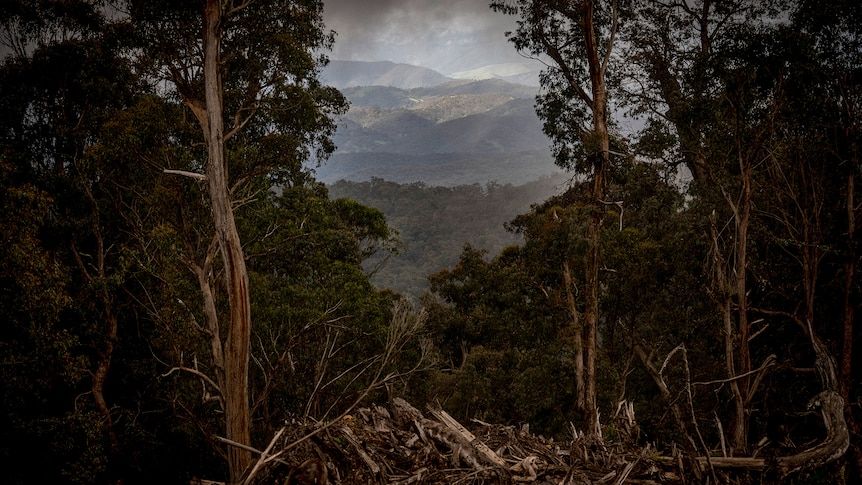
The US government has announced a $62.5 million plan to hire biologists to help 32 threatened and endangered species currently listed under the Endangered Species Act. This comes on top of more than $2 billion that has been set aside under the IRA to restore the country's lands and waters. US Fish & Wildlife Service
First Nations tribes in Minnesota have made a first-of-its-kind agreement giving them a greater voice in managing more than three million acres of land ceded to the federal government in 1854. 'This is really us standing shoulder to shoulder with the bands, knowing we're going to face issues and making sure we're having the right conversations early and together.' Star Tribune
Minnesota has banned the commercial collection of wild turtles, meaning tens of thousands of the animals will now be saved from becoming food, traditional medicines or pets. 'This ban is a big victory for all of us who care about the health of our state’s wildlife and waterways.' US Centre for Biological Diversity
Another week, another river restoration. This time, it's Toronto's Don River, which was pronounced dead in 1969. Half a century later, it's roaring back to life. Beavers, mink, eagles, deer and coyote are returning, its waters are becoming cleaner, and billions are being spent to restore a body of water that was despised and feared for decades. Guardian

Brazil’s environmental regulator is beginning to flex its muscle, suggesting a new direction under the Lula government. It just rejected a licence for an offshore oil drilling project near the mouth of the Amazon, proposed by state-run oil company Petrobras, after a nearly nine-year campaign by activists. AP
Oregon has became the 10th state in the US to ban polystyrene. Starting in 2025, the new law prohibits the production, sale, and distribution of polystyrene cups, takeout containers, and even coolers and packing peanuts. The state government has also banned PFAS, 'forever chemicals,' from being added to plates, bowls, cups, and other foodware. One Green Planet
Jamaica's plastic ban, implemented three years ago, has largely eliminated plastic straws and bags, as well as styrofoam boxes and cups, and reduced plastic waste by several million tonnes. "It has been a huge victory, it triggered a lot of consciousness, it triggered a lot of action." A new round of fines is now being planned to address leakage and shut down loopholes. Radio Jamaica
The southern river terrapin, a critically endangered species from south-east Asia, is recovering thanks to a breeding program in Cambodia that's been running for three years. This year, 122 turtles were successfully hatched, and officials say they expect an increase to 200 next year. Phnom Penh Post
Last year, Panama passed a law guaranteeing the rights of nature. That law is now being used to protect sea turtles in some of the world's most important nesting spots, giving them the right to an environment free of pollution and other detrimental human impacts, and with enough specificity that those rights can be enforced. AP
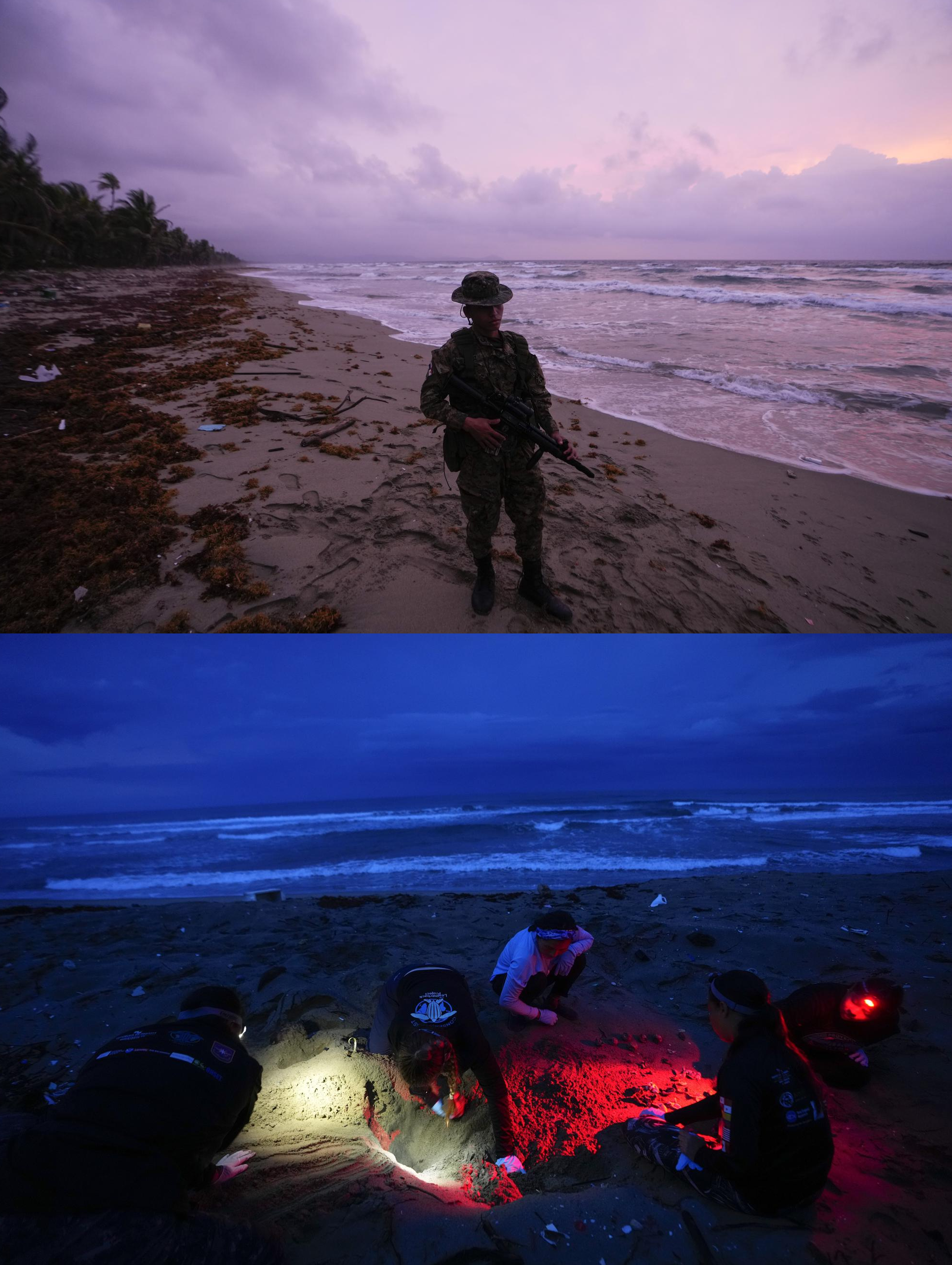
Saving the world is cheaper than ruining it
A major shift is taking place in global energy. Five years ago, for every dollar invested in fossil fuels, the same went to clean energy. Since then, a big gap has opened up. This year, for every $1.00 invested in fossil fuels, $1.70 will go to clean energy, led by solar, which in 2023, for the first time ever, will attract more capital than oil. FT
Most of this is because of solar in China, easily the most under-appreciated climate story in the world right now. The country is currently installing 12 GW of solar panels a month, up from 7 GW a month in 2022, and is on track to reach 154GW by the end of 2023. That's more than the total solar installed in the United States, in a single year. Bloomberg
With a little back-of-the-envelope math, that means we could hit 1 GW a day globally this year. Some context:
1 GW per month in 2010
1 GW per week in 2016
1 GW per day in 2023
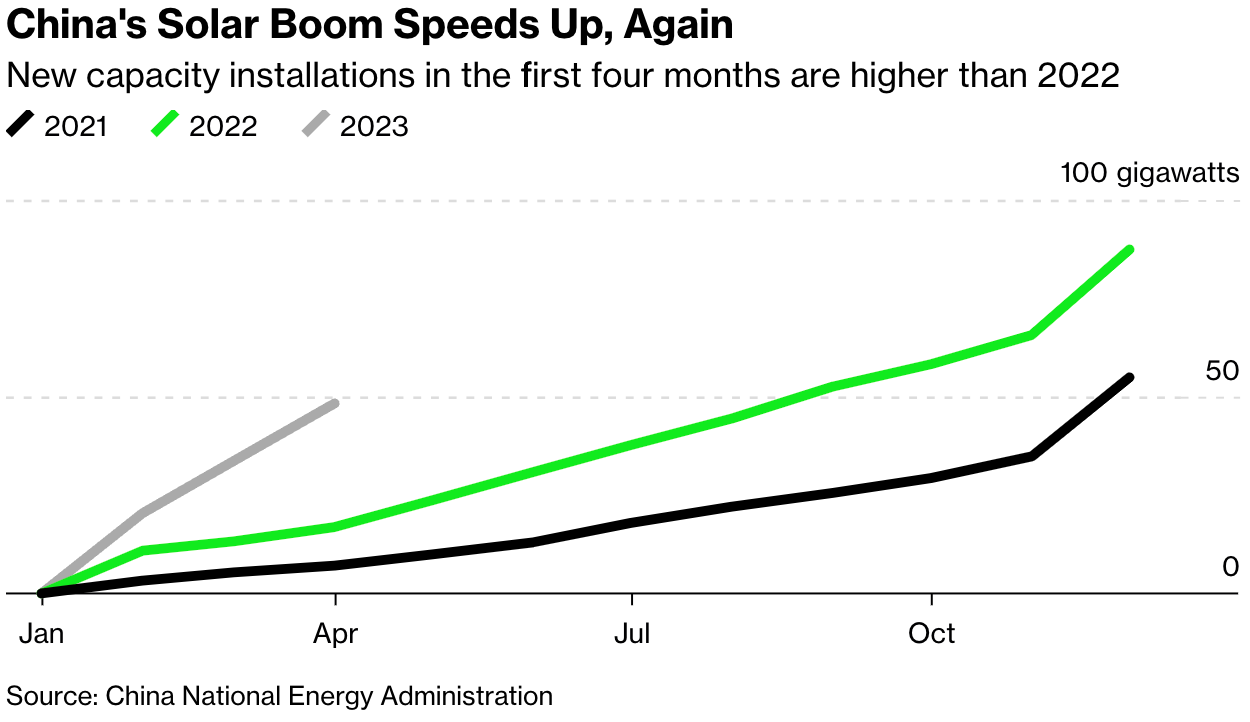
Many of our readers may have seen recent reports that temperatures are on track to breach 1.5°C of warming this decade. What you may not have seen is new research showing that if every country meets their medium- and long-term climate commitments, we should be able to limit warming to between 1.7°C and 1.8°C. Guess which one of these stories got more media attention?
India is on track to meet its clean energy targets. Installed renewable capacity will reach 174 GW in 2023, accounting for about 37% of total energy supply, and is projected to hit 280 GW by 2025. In the space of a few years, the country has become a front-runner in the global renewable energy market. Economic Times
Last week Vietnam approved a long-anticipated $134 billion plan to slash its use of coal-fired electricity by the end of the decade. Under the blueprint, coal generation will drop to 19% of power supply by 2030, from almost half now, and the aim is then to get to zero by the middle of the century. Bloomberg
Renewables in Europe are having a great spring. Solar and wind produced more than 50% of Portugal’s electricity for the first time in April; Spain managed to power 100% of its grid for nine hours with renewables; and Finland and Belgium have also broken energy records. 'The lightning pace of deployment, especially of solar, promises many more records to come this summer.' Euronews
A Kenyan company that runs a pay-as-you-go-model for solar panels has raised over $250 million in one of the largest-ever fundraisings by an African technology startup. M-Kopa, which also runs projects to finance electric motorbikes, says the money will help it expand and acquire up to 100,000 customers a month. FT
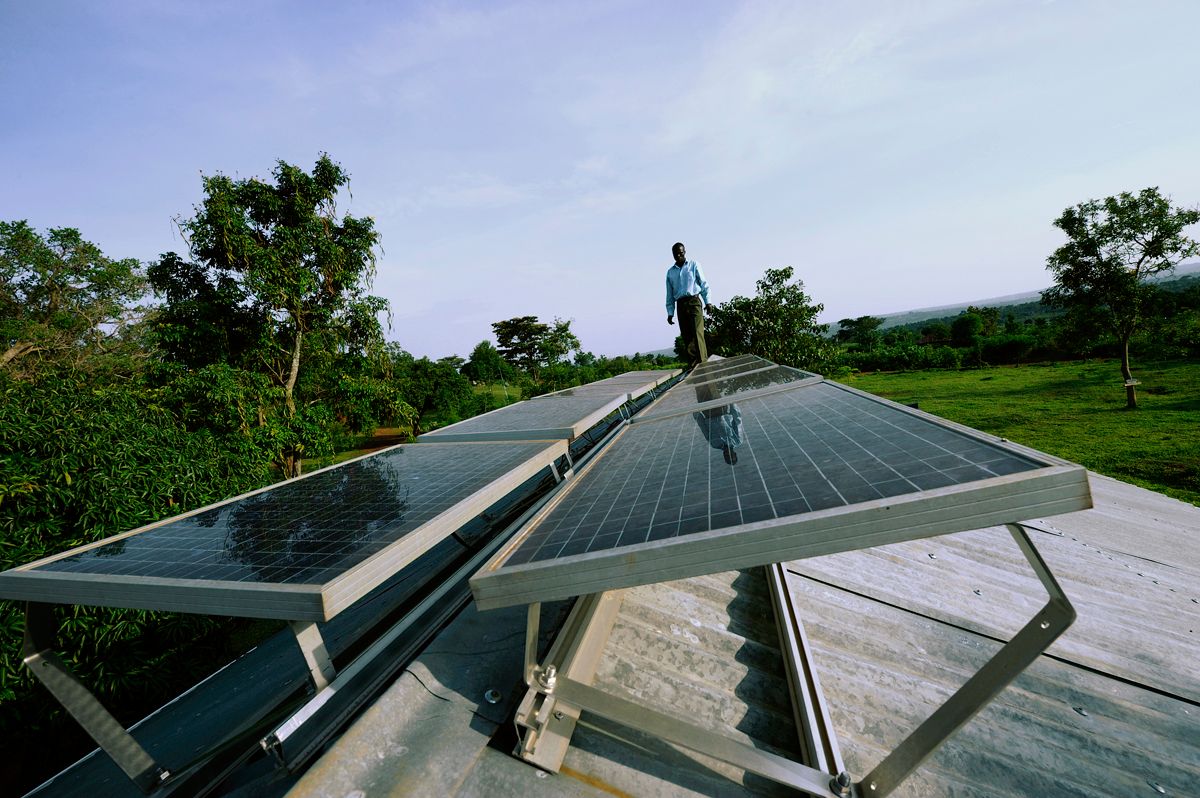
The campaign to stop the $5 billion East African Crude Oil Pipeline is working. Sumitomo Mitsui Banking Corporation, one of the project's key financial advisors and joint lead arranger, has pulled out. This follows a similar recent announcement by South Africa's Standard Bank, one of the project's other lead financiers.
You all know the drill: transmission, baby, transmission. California's electric grid operator just approved a $7.3 billion plan for 45 new power transmission projects over the next decade and has made it easier for new power plants in high-priority areas to connect to the grid. The plan will support the development of more than 40 GW of new generation. Reuters
China has become the world's biggest car exporter, overtaking Japan. Part of the reason is the Russia sanctions, which have caused Russia to start buying its cars from China, but the main driver has been the massive shift in the global auto industry, from internal combustion to electric vehicles. BBC
A few weeks ago we included a story about a new battery from the world's biggest battery maker, CATL It's a gamechanger - double the density of anything else on the market, opening up the possibility of 1,500 km EV ranges and electric aviation. Here are some more details from Inside Climate News.
Five years ago, when I talked to experts about tipping points in the shift to EVs, they were looking to the late-2020s and early 2030s as when the momentum would become unmistakable and unstoppable. Now, the actions by automakers and policy changes by the world’s largest economic powers have moved up this timetable.
Speaking of tipping points, Australia is the lucky country yet again. For the first time ever, lithium, a commodity central to the transition, is poised to overtake fossil fuels as a revenue source for Western Australia, the top region in the world for mining investment. Feels like a big moment. ABC
We wonder what Scotty thinks of that?
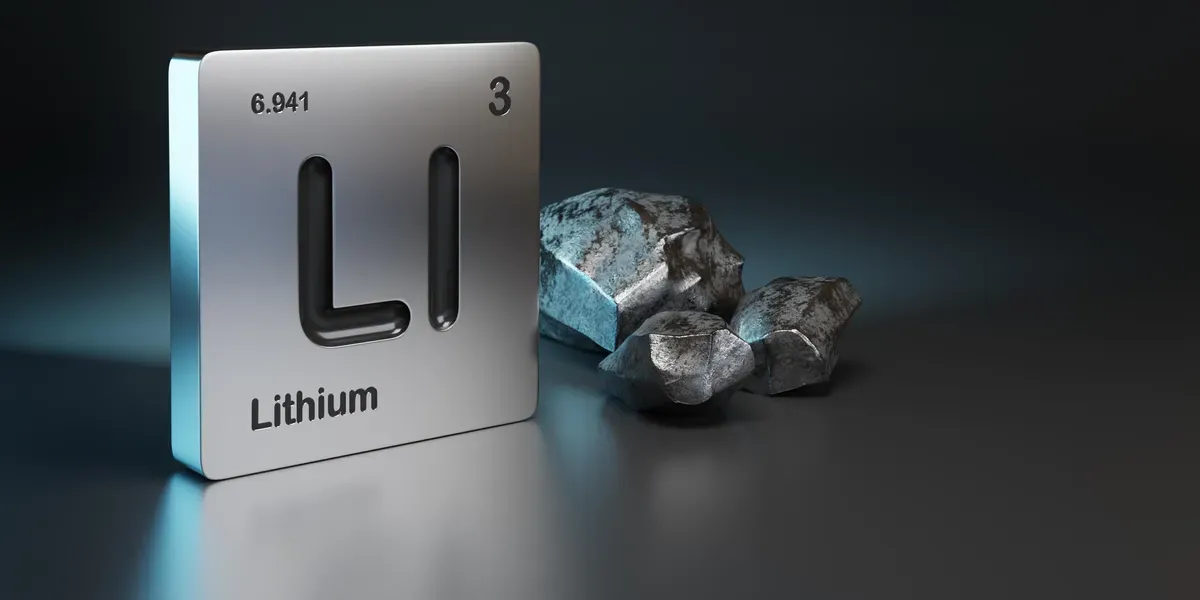
That's it for this week, whew! As we said, a bumper edition. Hope you enjoyed reading, thank you as always for your attention. We hope to see many of you over in the premium edition in a fortnight's time.
With love,
FC HQ





